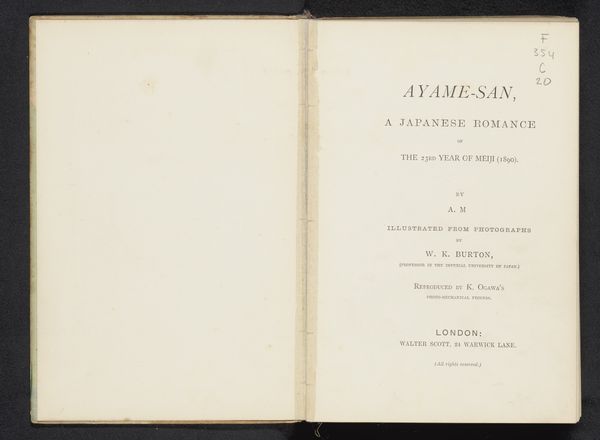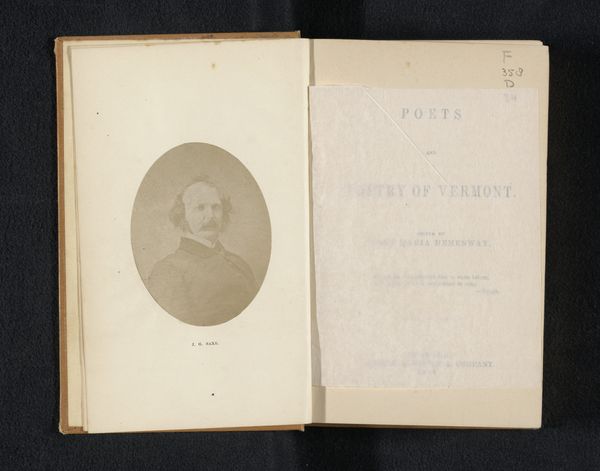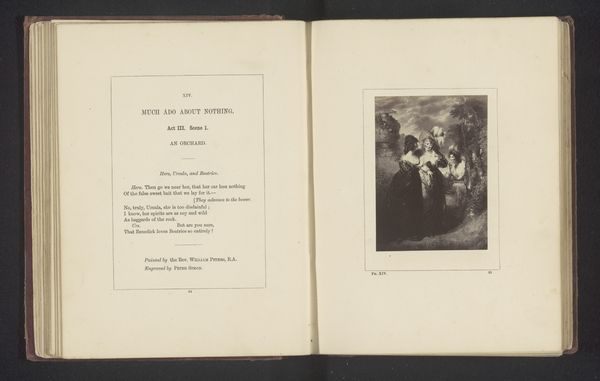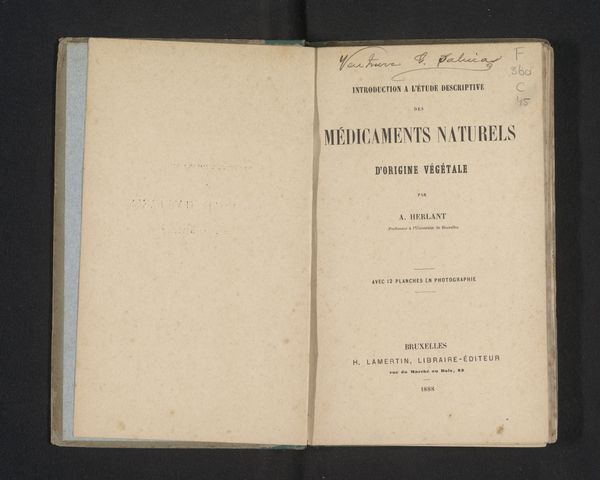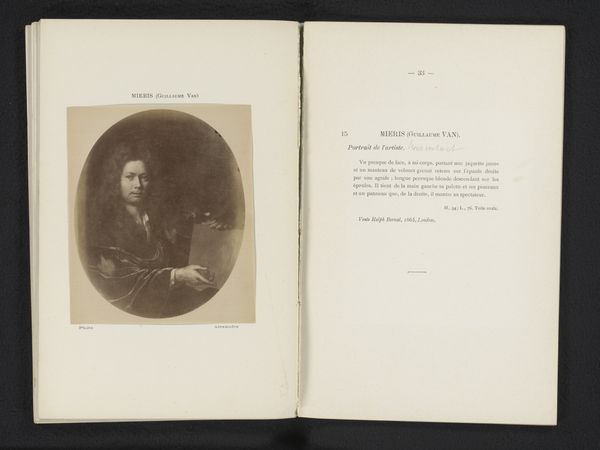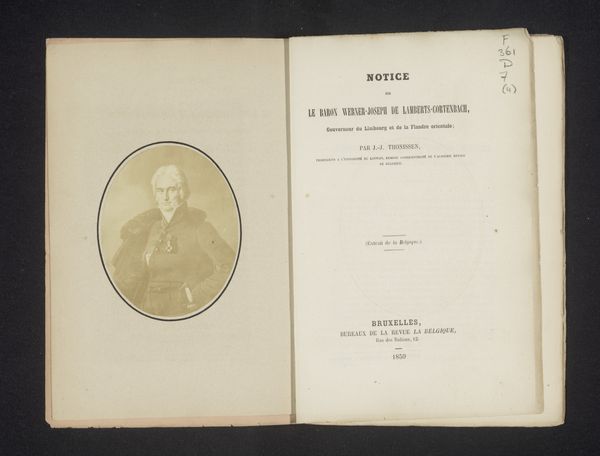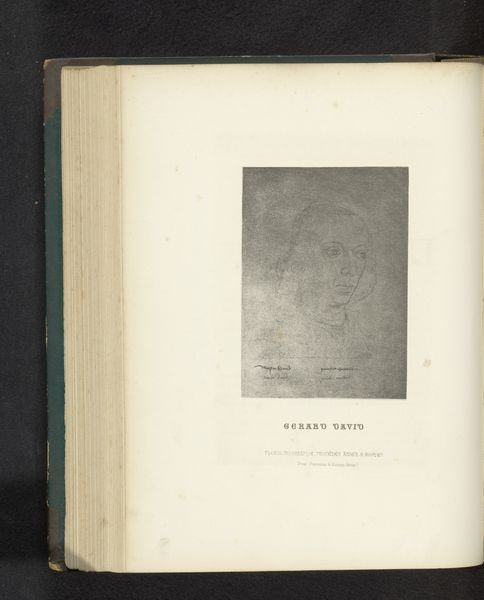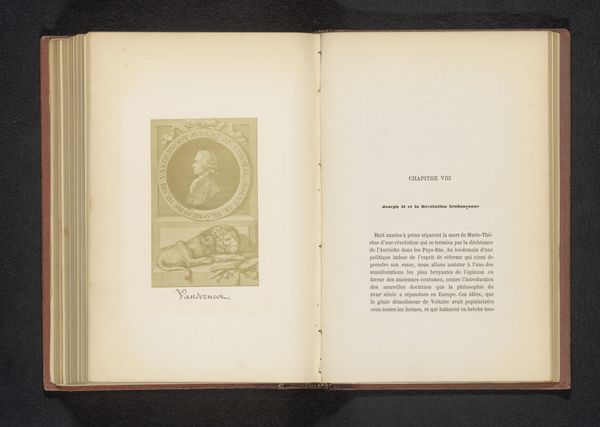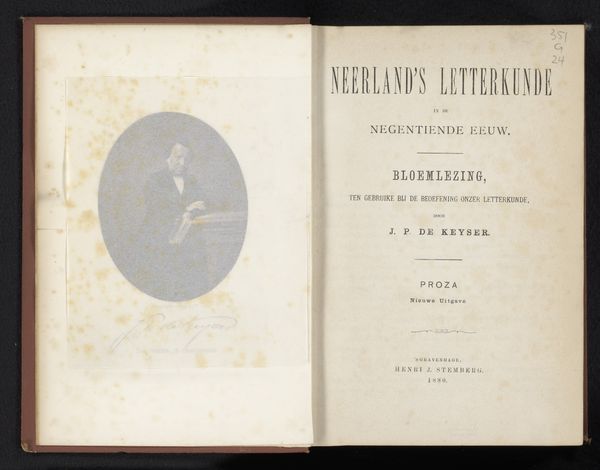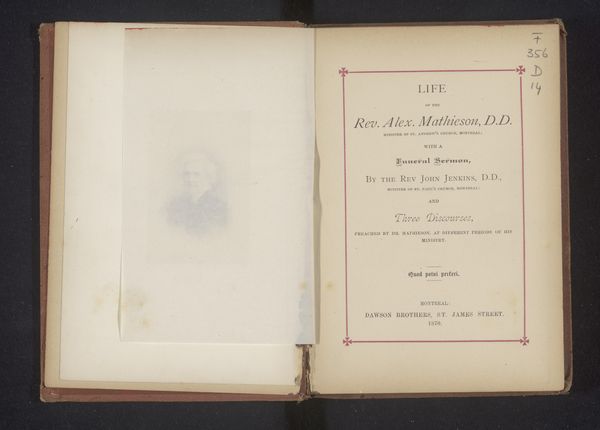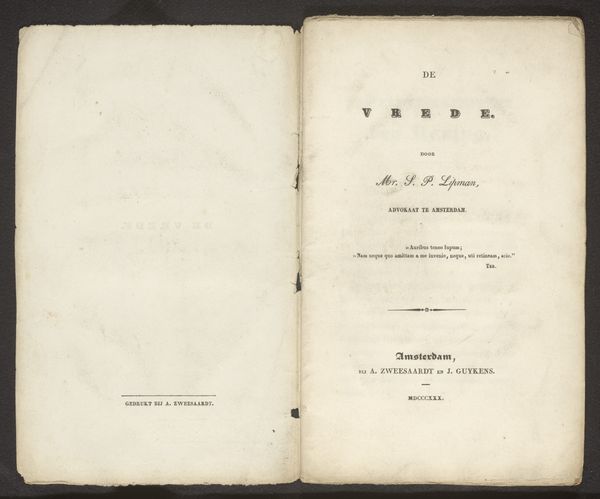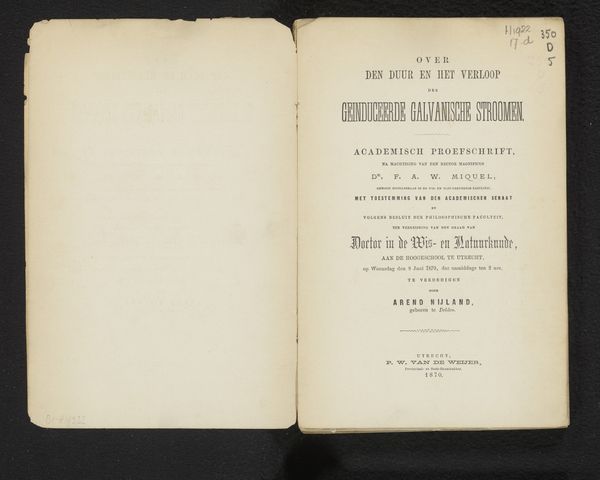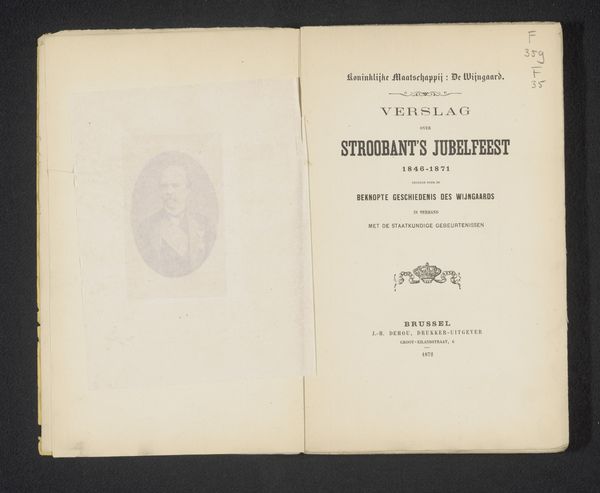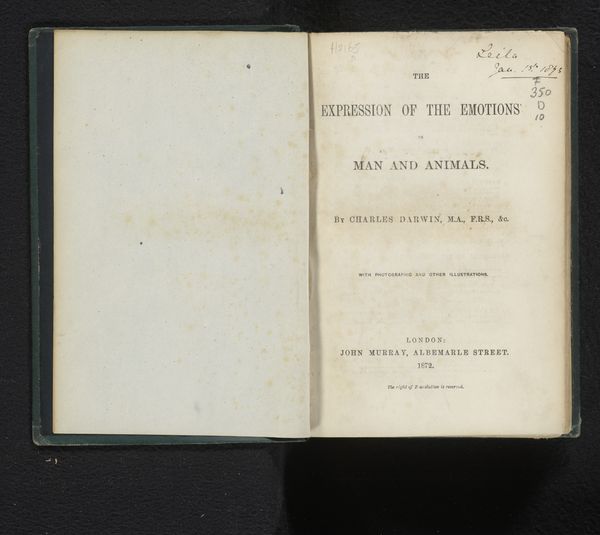
Fotoreproductie van een geschilderd portret van William Juxon, aartsbisschop van Canterbury before 1869
print, paper, photography
portrait
script typeface
aged paper
paperlike
book
personal journal design
paper
photography
thick font
handwritten font
classical type
paper medium
thin font
historical font
Dimensions: height 114 mm, width 85 mm
Copyright: Rijks Museum: Open Domain
Curator: Looking at this photographic reproduction from before 1869 of William Juxon, Archbishop of Canterbury, reminds us how closely bound material processes are with social standing. Editor: That’s interesting! I see a printed portrait, likely of an oil painting, within the pages of a book, perhaps a biography of Juxon himself. It seems quite formal, a representation intended to convey authority. How would you approach interpreting this? Curator: I’m interested in the layering of reproduction techniques. We have a photograph *of* a print *of* a painting. What labor went into each stage? And who controlled access to these images? This wasn’t about mass distribution like newspapers, but more than the painting alone. The photographic print allowed wider, but still controlled, circulation of the Archbishop's image within a certain societal circle. Editor: So the material itself is a status symbol. The quality of paper, the photographic process, the printing – these all speak to who could afford and access this knowledge and portrait. Curator: Precisely. Consider the act of binding this reproduction within a biographical text. How does this deliberate construction shape the reception of Juxon’s legacy? Was the mass manufacture and consumption of imagery reshaping earlier practices of portraiture? How do changes in print culture impact perceptions of authority figures, or religion? Editor: It really highlights the complex relationship between art, its means of production, and its social context! I'll never look at portraits the same way. Curator: Agreed! Recognizing how these interwoven factors intersect helps us see the full picture.
Comments
No comments
Be the first to comment and join the conversation on the ultimate creative platform.
